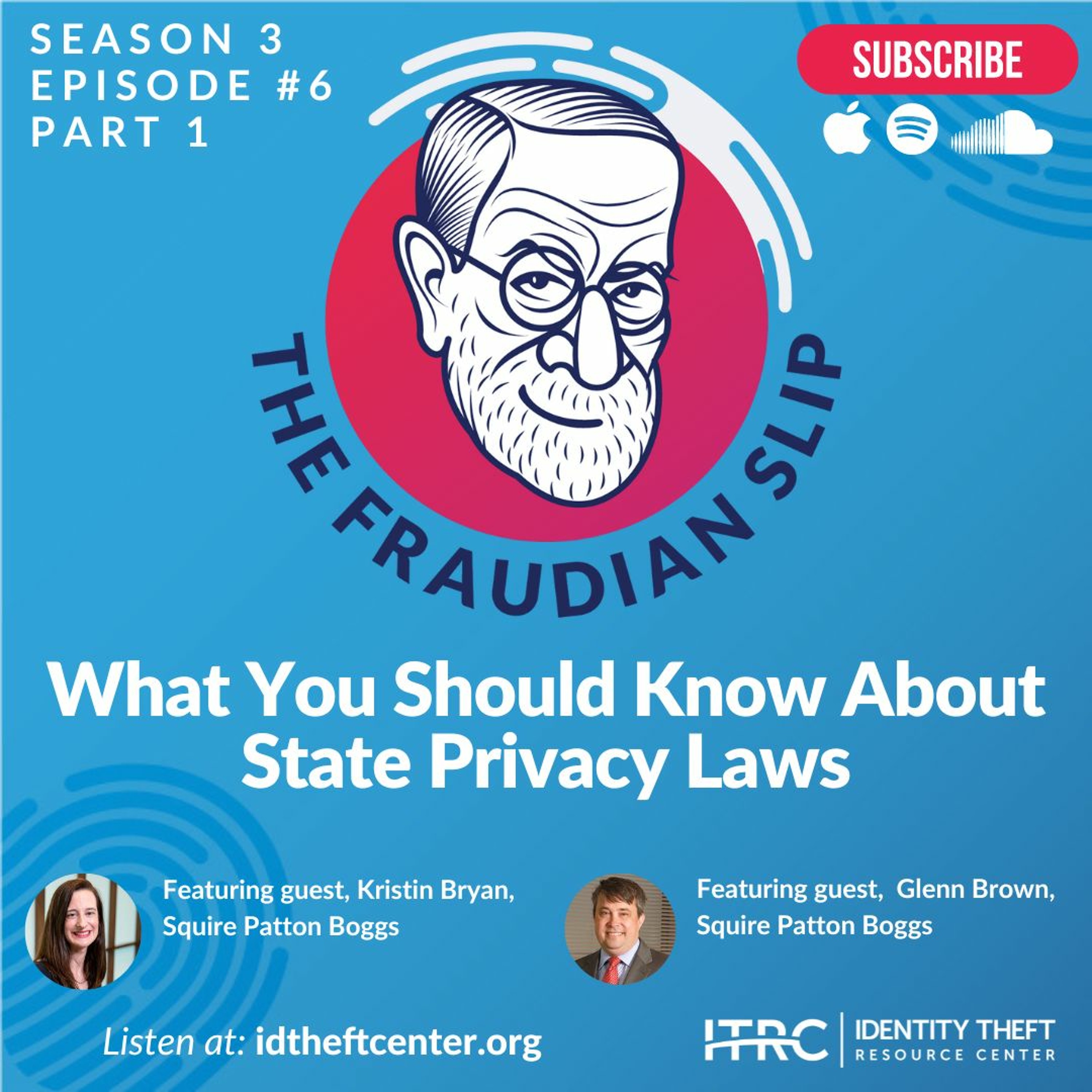More often than not these days, the conversation at work & home centers on data privacy. What personal information is collected about us, by whom, and how is it used? How is it stored and for how long? Who has access to it and is it sold to third parties?
Show Notes
Follow on LinkedIn: www.linkedin.com/company/idtheftcenter/
Follow on Twitter: twitter.com/IDTheftCenter
Show Transcript
Squire Patton Boggs speak with the Identity Theft Resource Center about all things state data privacy laws
- Right now, there is no data privacy law at the federal level. In fact, we are only at the beginning of states adopting comprehensive data privacy laws.
- While it has been a slow march to data privacy, 2022 has been an active year in state capitals. There could even be action in Congress on the horizon.
- In part one of a two-part Fraudian Slip series on privacy laws, the Identity Theft Resource Center (ITRC) sits down with Squire Patton Boggs to discuss state data privacy laws, including the right of consumers, obligations of businesses, the outlook for other states and more.
- You can learn more about state data privacy laws and other topics discussed in the podcast by visiting our company website idtheftcenter.org.
- If you think you are the victim of an identity crime, call the ITRC toll-free by phone (888.400.5530) or live-chat on our webpage to speak with an expert advisor.
Below is a transcript of our podcast with special guests Kristin Bryan and Glenn Brown of Squire Patton Boggs
Welcome to The Fraudian Slip, the Identity Theft Resource Center’s (ITRC) podcast, where we talk about all-things identity compromise, crime and fraud that impact people and businesses. Listen on Apple, Google, Spotify, SoundCloud, Audible and Amazon now. In part one of a two-part series this month, we will examine state data privacy laws. What do you need to know?
We talk a lot about privacy in the U.S. As individuals, we talk about our right to privacy. We complain from time to time about what we perceive as a violation or loss of our privacy. As business leaders, we talk about the need to protect the privacy of our employees and customers. More often than not these days, the conversation at work and home centers on data privacy. What personal information is collected about us, by whom, and how is it used? How is it stored, and for how long? Who has access to it? Is it sold to third parties?
As long-time listeners to this podcast know, there is no single data privacy law at the federal level. We are just at the beginning of states adopting their own comprehensive state data privacy laws.
Despite what some might describe as a slow march to data privacy, 2022 has been a very active year in state capitals, and there could even be action in Congress on the horizon.
Because this is such a wide-ranging topic with a lot of nuances, we’re going to break this discussion into two episodes. Today we talk about what’s been happening at the state government level. Next week, we’ll dive into what may, or may not, turn out to be landmark federal legislation.
Here to help us get a better view of the data privacy landscape are two of the leading attorneys in this space, Kristin Bryan and Glenn Brown from Squire Patton Boggs. As always, we’re joined by the ITRC’s CEO, Eva Velasquez, to give us the point of view of identity crime victims.
Kristin Bryan, Glenn Brown and Eva Velasquez discussed the following:
- Rights of consumers
- Obligations of businesses
- California Privacy Rights Act (CPRA)
- State biometrics laws
- Outlook for other states
Now, having discussed state data privacy laws, there is, for the first time in many years, a bipartisan agreement between committee leadership in the House and Senate on drafted federal privacy legislation (with the exception of one Senate Committee chair). The “American Data Privacy and Protection Act” is wide-ranging and may overcome the two objections that have kept privacy legislation from moving forward for decades: federal preemption of state laws and the right of an individual to file a lawsuit, also known as a “private right of action.” Tune in next week for part two of the discussion when we talk about the chances we will see a federal privacy law.
If you want to learn more about Squire Patton Boggs views on the latest legal and legislative events related to privacy, visit www.consumerprivacyworld.com.
If you think you have been the victim of an identity crime or want to avoid becoming a victim, you can speak with an expert advisor on the phone (888.400.5530), chat live on the web or send us an email during our normal business hours (6 a.m.-5 p.m. PST Monday-Friday). Just visit www.idtheftcenter.org to get started.
Be sure to join us next week for part two of our discussion on privacy laws.
Listen On
Also In Season 3
-
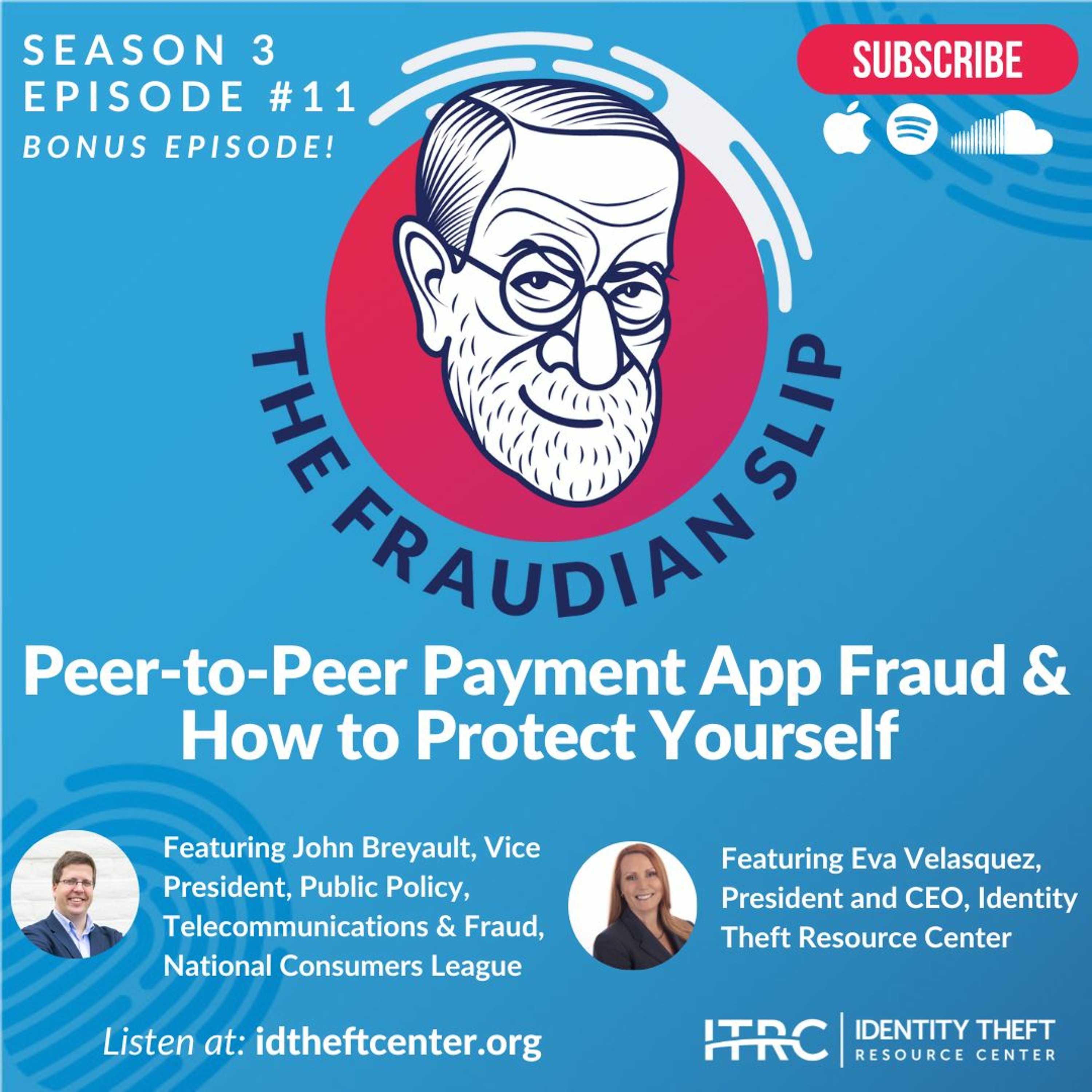
The Fraudian Slip Podcast ITRC - P2P Fraud
Welcome to the Fraudian Slip…the Identity Theft Resource Center’s podcast where -
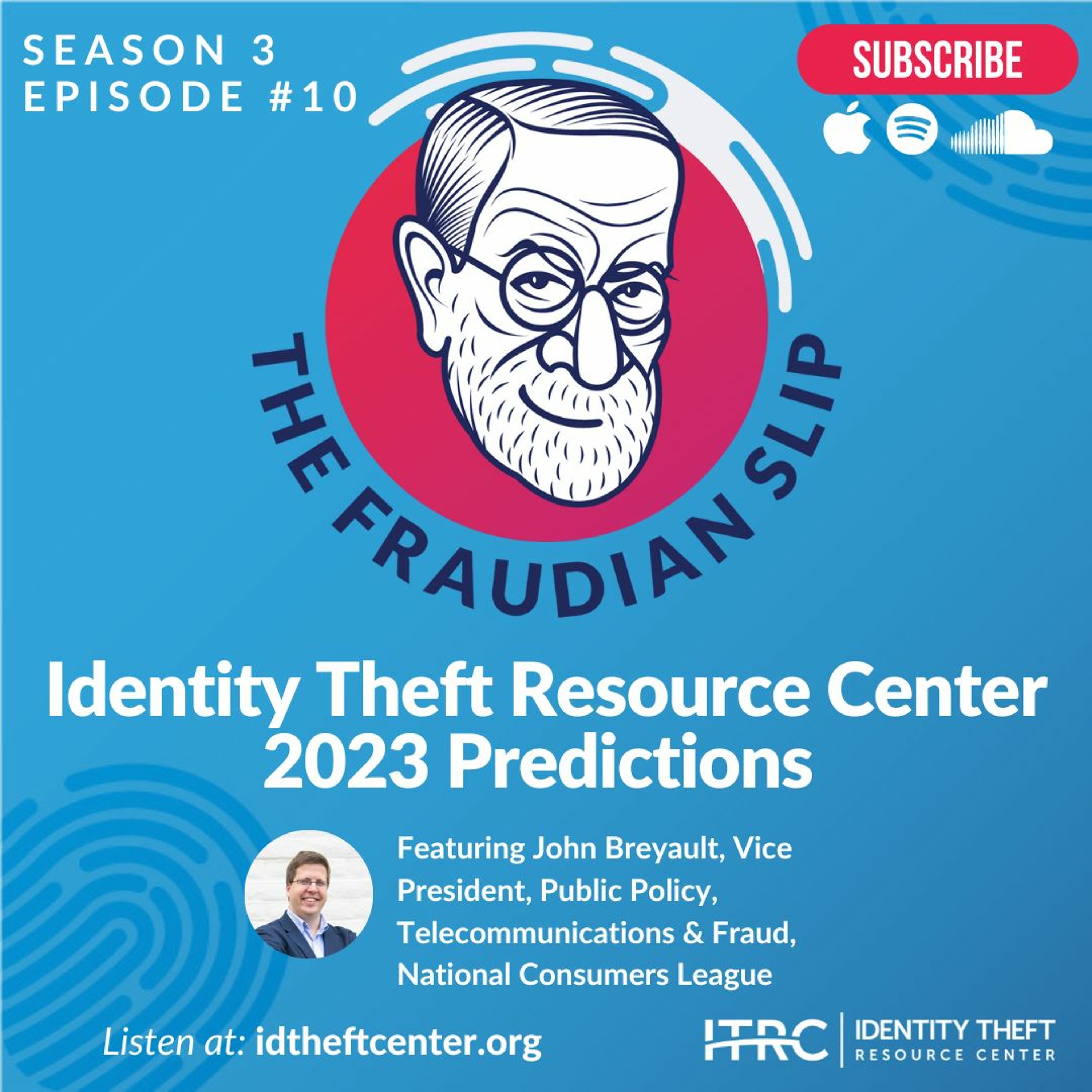
The Fraudian Slip Podcast ITRC - 2023 Predictions
Welcome to the Fraudian Slip…the Identity Theft Resource Center’s podcast where -
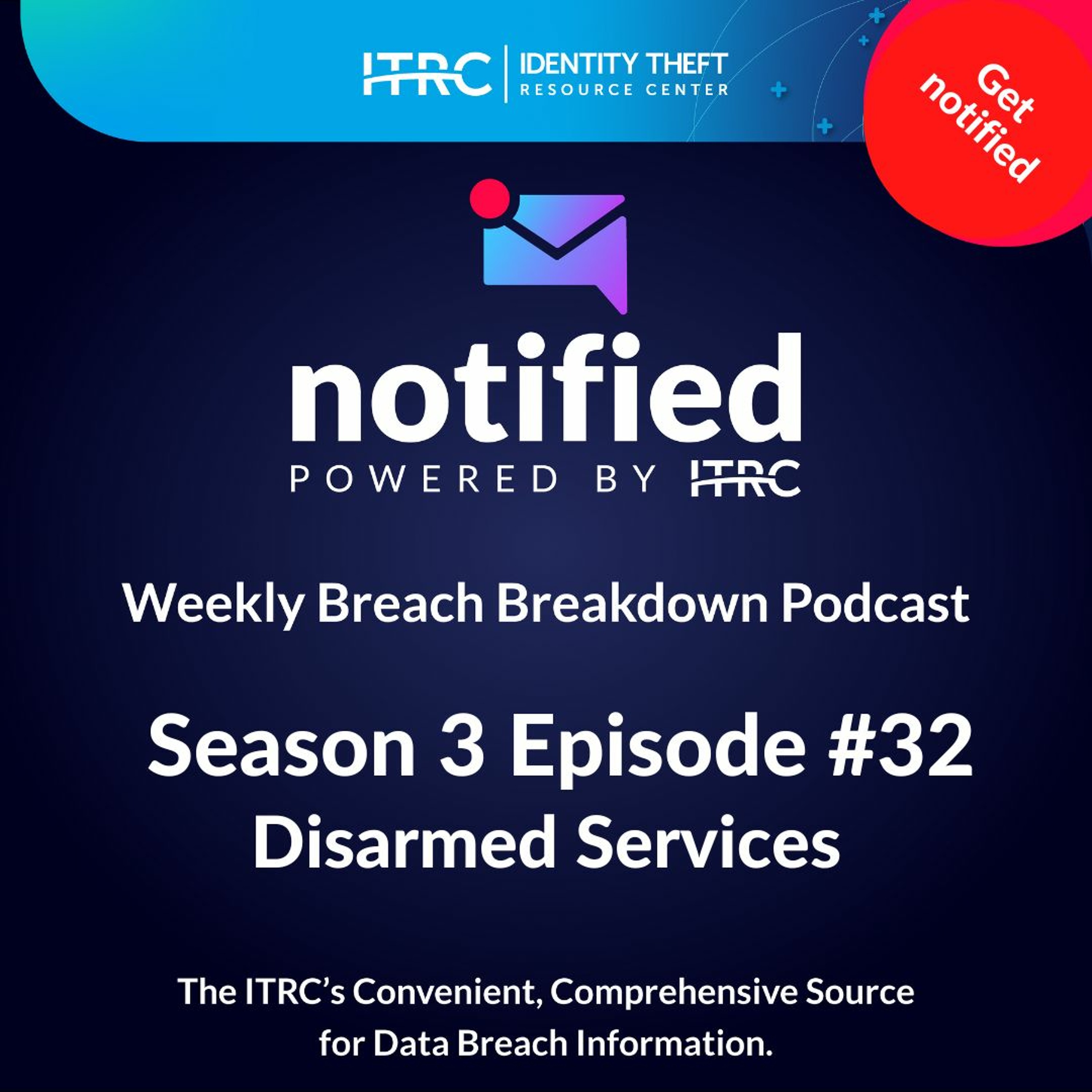
The Weekly Breach Breakdown Podcast by ITRC - Disarmed Services - S3E32
Welcome to the Identity Theft Resource Center’s Weekly Breach Breakdown for Nove -
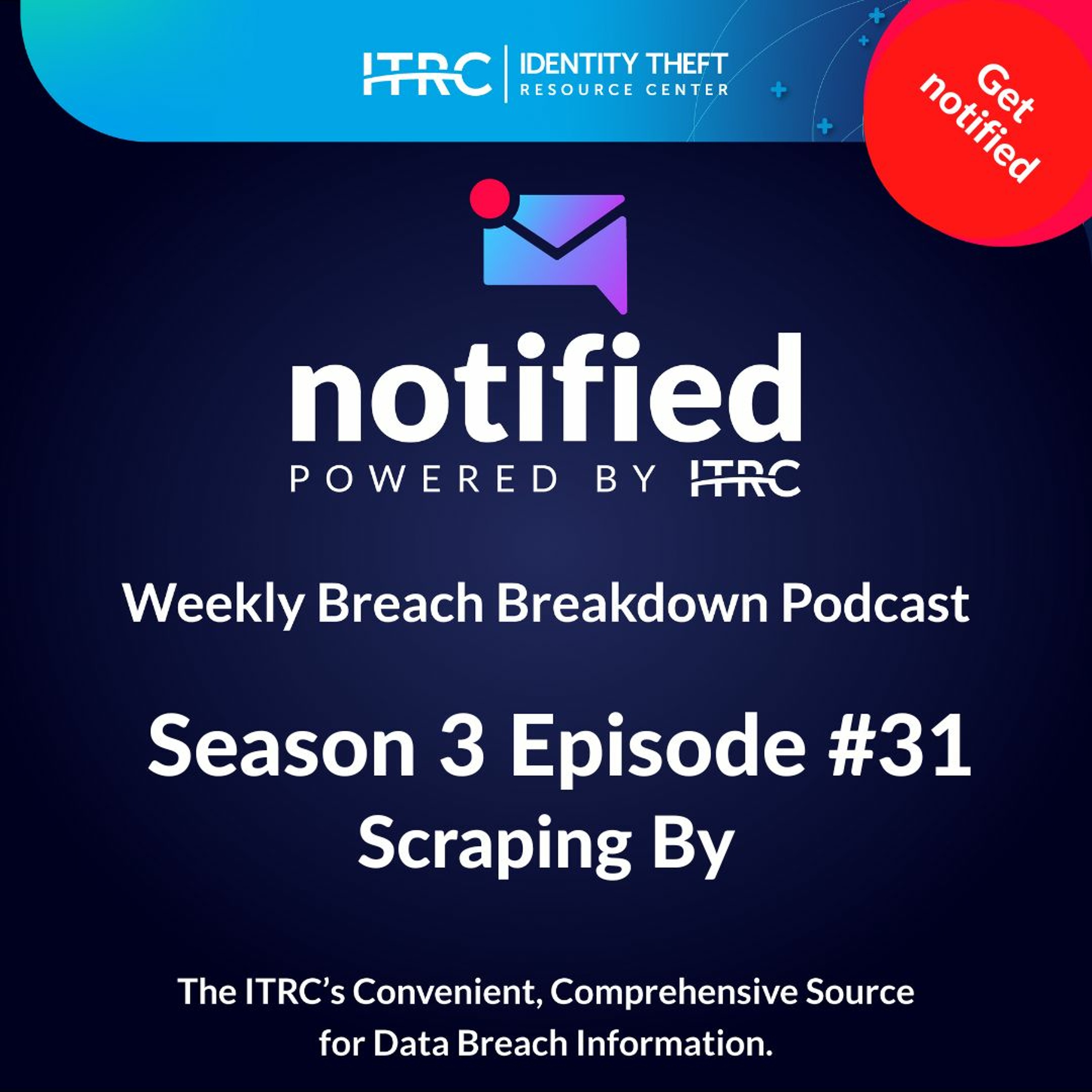
The Weekly Breach Breakdown Podcast by ITRC - Scraping By - S3E31
Welcome to the Identity Theft Resource Center’s Weekly Breach Breakdown for Nove
